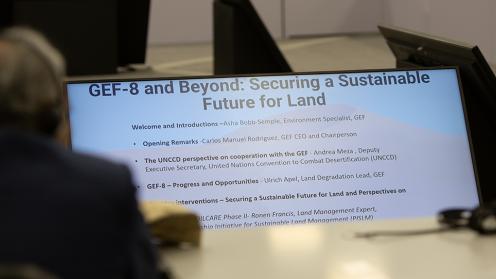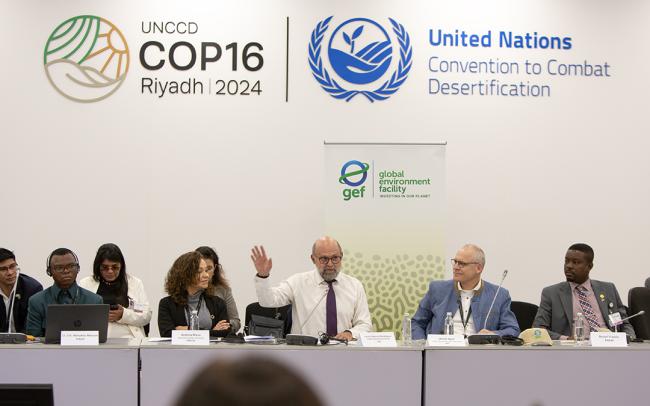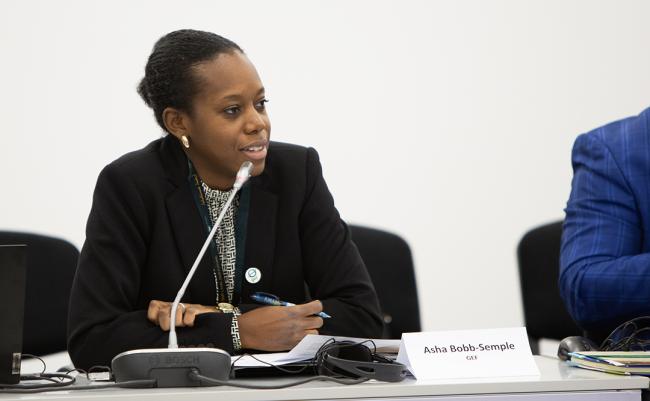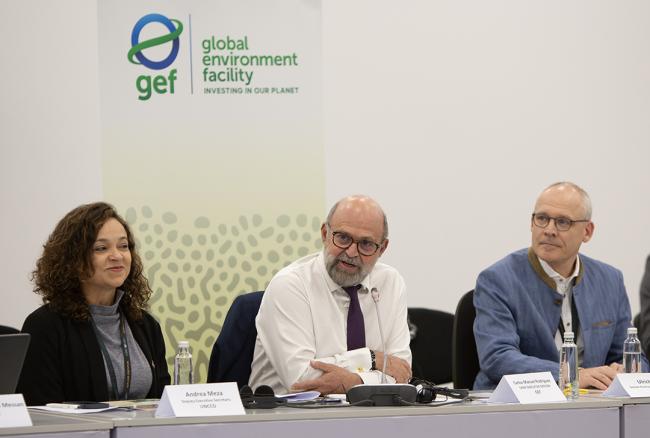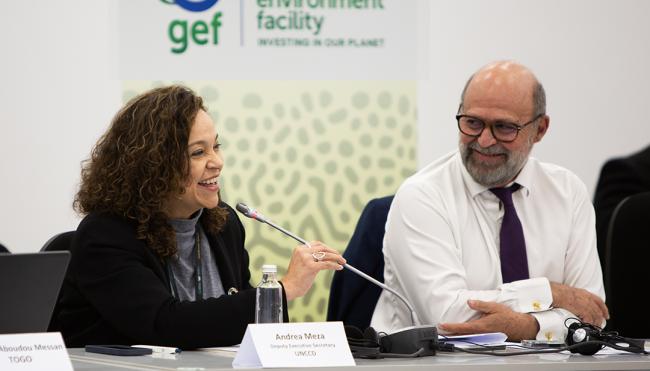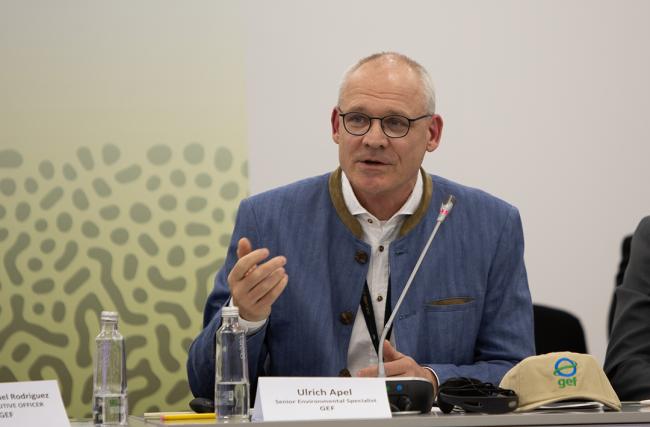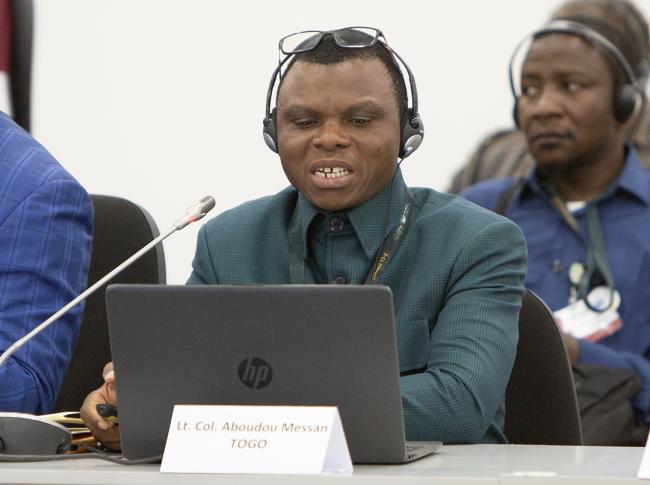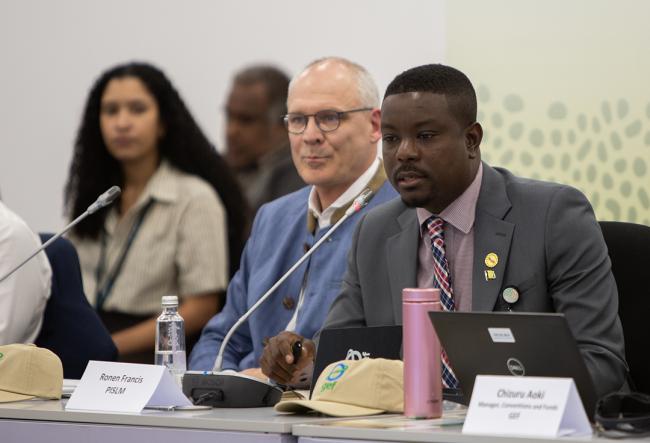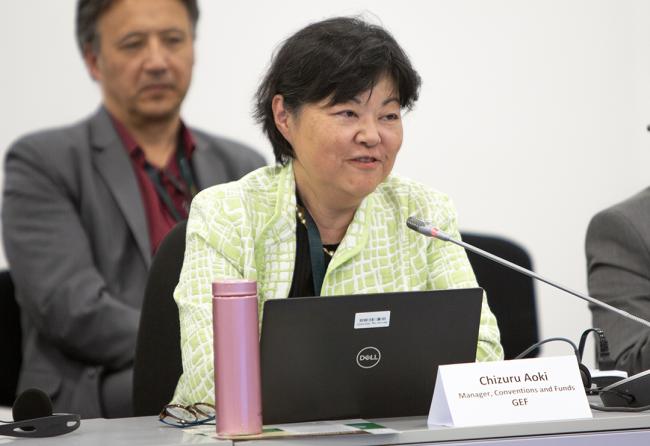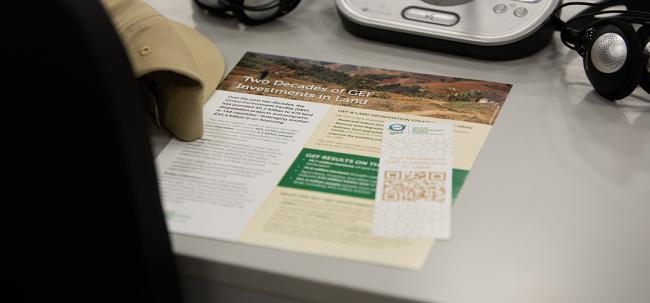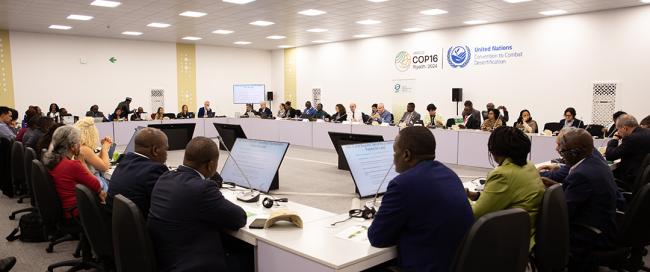About
GEF funds have enabled many countries to conduct better soil health analysis to support land-use decisions. Many said next steps should promote greater political coherence across agriculture, energy and other sectors for management at the landscape level.
Global Environment Facility (GEF) leaders came together with others to discuss what changes could better enable GEF funds to “move the needle” on sustainable landscape management, in view of commitments under the UN Convention to Combat Desertification (UNCCD) and the upcoming ninth replenishment of the GEF Trust Fund (GEF-9). They called for promoting greater political coherence across sectors, especially action across the energy, agriculture, and environmental sectors.
Asha Bobb-Semple, Environment Specialist, GEF Secretariat, facilitated this event, noting that the objective was to update participants on country- and global-level interventions at the half-way point of GEF-8.
Carlos Manuel Rodriguez, GEF CEO and Chairperson, described the current impasse on biodiversity loss, climate change, and desertification as a moment to question current institutional arrangements and promote greater ambition and effectiveness, despite limited resources. Noting the recent calendar of back-to-back COPs, he advocated for a single unified COP that covers biodiversity, climate, and desertification and that takes place every few years.
Rodriguez noted that few countries have ministries which combine environment and agriculture, and yet 80% of land use and deforestation happens because of decisions in the agriculture sector. This lack of political coherence, he said, not only drives harmful subsidies; it also makes it difficult for agencies to act at the landscape level.
He explained that the GEF currently works only with ministries of environment, and not with ministries of finance, planning, and agriculture. However, in order to increase the effectiveness of GEF funding, Rodriguez said that GEF-9 will alter the practice of having an operational focal point, currently only represented by environment ministries. He said it would be replaced by a steering committee with several ministries involved in decisions on how to use GEF resources.
Andrea Meza, Deputy Executive Secretary, UNCCD, supported the comments by Rodriguez. She emphasized that the GEF is a financial mechanism that can unlock reforms at the institutional level, and underscored the importance of greater collaboration at the country level across ministries and sectors.
Ulrich Apel, Land Degradation Lead, GEF Secretariat, recalling that the GEF has been the UNCCD’s financial mechanism since 2006, said it has provided USD 5.2 billion for sustainable land management since then. He reported that, since COP 15, 19.7 million hectares of land and ecosystems have been or are being restored, and 74.8 million hectares of land is being sustainably managed .
Representatives from recipient countries then spoke about the benefits achieved through GEF funding. Calvin James, Executive Director, Partnership Initiative for Sustainable Land Management, described achievements, including national soil analyses in seven Caribbean small island developing states (CSIDS), provision of farmer training in visual analysis of soil health, provision of PhD scholarships for soil research, and establishment of regional knowledge networks. He described further work planned in generating soil maps, improving soil productivity, enhancing systems for flood and drought monitoring, and enhancing agricultural value chains, especially to benefit women and youth.
Aboudou Messan, Head, Forest Division, Ministry of Environment and Forest Resources, Togo, reported on the use of gender-disaggregated data for decision making, restoration of degraded lands in seven regions and in a national park, capacity building for land-use decisions to support biodiversity conservation and Land Degradation Neutrality (LDN), and integration of gender considerations in knowledge management and communication. He highlighted Togo’s commitment to restore up to 26% of land and improve agricultural yields by 10%, by 2030. He said that further work would take place on improving ecosystem resilience, reforesting mountain areas, and conducting climate adaptation activities on the Togo Plateaux Region.
In further discussions, participants asked how the GEF Secretariat would work with government agencies at the subnational and transboundary levels. Rodriguez noted that national government support is essential in order for the GEF to be able to provide support directly to the subnational level. He urged participants to send a clear message through COP 16 regarding the need for greater political coherence across all levels. Responding to a question regarding the small number of regional projects, Apel clarified that GEF projects covering more than one region are referred to as “global” projects. He also noted that countries can choose to work together, as CSIDS have done by pooling the financial resources they received from GEF.
Other delegates expressed interest in accessing GEF funds, and welcomed the GEF’s convening power to overcome the siloing of issues at the national level. Rodriguez noted that the GEF provides funding to all Member States on a transparent basis but has mobilized only 5% of all funds raised through international cooperation for implementation of the UNCCD, because donor countries prefer to disburse funds through bilateral rather than multilateral cooperation. He urged all present to support decisions at COP 16 that will assign larger amounts for multilateral cooperation, set targets for transparency, and guarantee greater flexibility in the use of funds provided.
In closing, Chizuru Aoki, Manager, Conventions and Funds, GEF Secretariat, reminded participants that the GEF provides access to a family of funds, which includes not only the GEF Trust Fund but also the Least Developed Countries Fund and the Global Biodiversity Framework Fund. She invited delegates to express their preferences at UNCCD COP16 and the forthcoming GEF Council meeting regarding the next GEF replenishment in 2025.
Organizer: Global Environment Facility
Contact: Alexandre Pinheiro Rego | arego@thegef.org
Website: https://www.thegef.org
To receive free coverage of global environmental events delivered to your inbox, subscribe to the ENB Update newsletter.
All ENB photos are free to use with attribution. For UNCCD COP 15 Side Events, please use: Photo by IISD/ENB | Angeles Estrada Vigil
